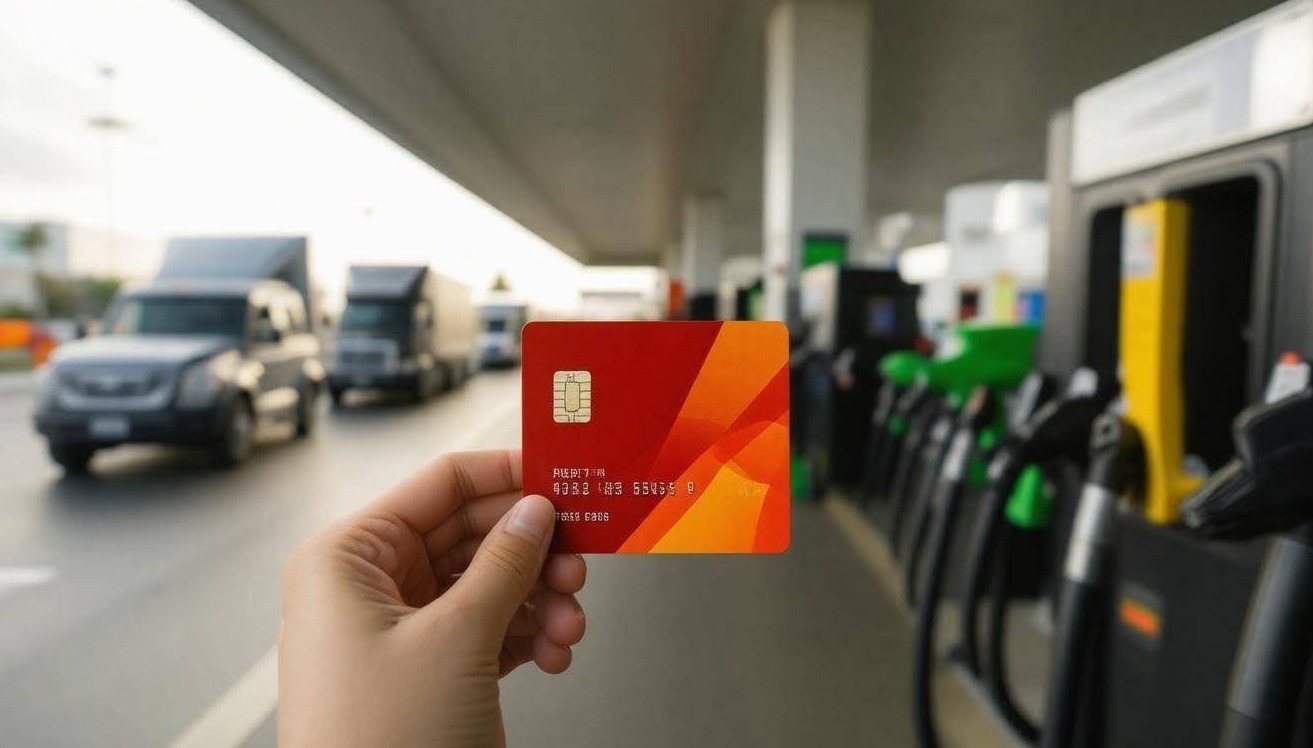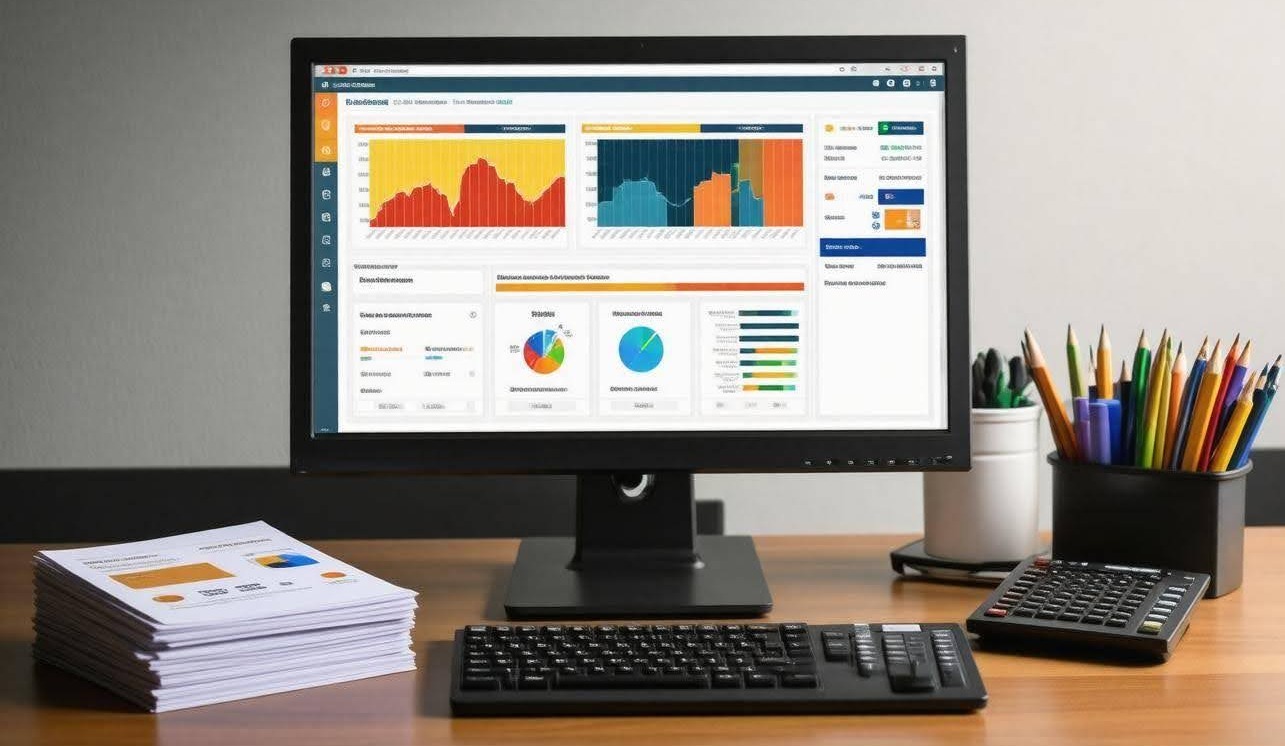Benefits of Fleet Fuel Cards: Save Money and Enhance Efficiency


Fleet fuel cards offer not just convenience but also substantial fiscal advantages that can significantly impact a business's bottom line. One of the most appealing features is the fuel discounts offered by many providers. Companies like WEX, Fuelman, and Shell present discount rates that typically range from 2% to 10% per gallon. For instance, consider a business that engines through about 10,000 gallons of fuel each month; this could translate to savings nearing $1,000 monthly, or an impressive $12,000 annually. This potential reduction in expenses can be transformative for small to mid-sized companies where every dollar counts, especially when accounting for other necessary expenses.
But discounts are only the beginning—rebates play an equally crucial role in enhancing financial efficiency for your fleet customers.
Rebates provide another layer of savings that adds up over time. Many fleet card providers reward businesses with monetary incentives based on how much fuel they purchase. The table below illustrates how some popular providers stack up against each other, showing potential fuel savings when the right credit decisions are made:
| Provider | Monthly Gallons | Savings Rate | Annual Savings |
|---|---|---|---|
| WEX | 10,000 | 6% | $7,200 |
| Fuelman | 8,000 | 5% | $4,800 |
| Shell | 12,000 | 7% | $10,080 |
As you can see from the above data, just choosing the right provider can result in thousands saved annually, reinforcing why careful evaluation during selection is pivotal for your fleet's economic health.
When you analyze these savings further, understanding their broader implications can lead to better decision-making that aligns with business priorities and customer expectations.
A significant aspect to grasp about fleet fuel cards is their ability to streamline operations while reducing costs simultaneously. Businesses that adopt these cards typically report operational cost reductions of up to 15% within their first year of integration. The bulk of these savings stem from reduced fuel costs through participating gas stations, which directly enhance profitability. By minimizing unnecessary expenses tied to fuel purchases and optimizing spending visibility across the fleet through real-time analytics and tracking tools, companies are empowered to make informed forecasts regarding their financial future.
Investing in fleet fuel cards can pave the way for substantial savings and greater operational efficiencies. Making wise choices with regard to fuel card providers not only ensures a smoother fueling experience but significantly boosts your company's financial health by improving accounting efficiency and client satisfaction.
With these financial benefits in mind, let's shift our focus to strategies that will further optimize your operations and elevate your business performance, ensuring your clients and customers receive consistent quality service wherever they are located.
One of the most tangible ways that fleet fuel cards contribute to operational efficiency is through minimized downtime, streamlined credit processes, and enhanced fuel savings.With drivers able to quickly refuel at various stations, it cuts down the wait time associated with more traditional refueling methods. Imagine a driver pulling into a gas station, swiping their WEX Fleet Card, and being back on the road in minutes instead of fumbling with cash or searching for receipts. This rapid refueling translates directly to more time spent on delivering services or goods—an essential factor for businesses that thrive on timely deliveries, all thanks to innovative solutions like those provided by WEX Inc.
It's crucial to understand that the impact of reduced downtime extends beyond just the immediate moment. Each minute saved adds up across the entire fleet, meaning more completed stops per day and increasing overall productivity. Fleet operations remain agile and responsive, particularly during peak seasons or unexpected demand surges.
Another noteworthy aspect is the simplification of transactions associated with fuel purchases as part of the WEX Savings Network.
As one satisfied fleet manager put it, "Using fuel cards simplified our procurement process so much; drivers no longer needed to submit multiple receipts or wait for reimbursements due to the clearly defined account agreement." This statement echoes a common sentiment among companies utilizing these tools, as eliminating cumbersome processes allows teams to focus on core operations.
Instead of handling stacks of paper receipts from various fueling stations, businesses receive a single, consolidated bill that provides an overview of all fuel expenses. This streamlined approach means less administrative overhead. Staff members can spend less time sifting through paperwork and more time analyzing expenses for insights on budget management or identifying trends in fuel consumption. This is particularly advantageous during stops at truck stop locations, where ease of transaction can greatly impact efficiency.
To illustrate this further, consider the following benefits within the management program:
| Benefit | Description |
|---|---|
| Time Savings | On average, businesses report a reduction of 20-30% in time spent on expense reporting and reconciliation tasks. |
| Accuracy | Automated tracking minimizes human error associated with manual entry of receipts. |
| Data Insights | Detailed reports aid in monitoring trends and potential inefficiencies within fuel usage. |
The advantages of adopting fleet fuel cards extend far beyond just efficiency improvements; they also reshape logistics management and financial oversight, allowing organizations to streamline operations while extracting valuable data insights along the way.

When it comes to tracking fuel expenses, having a solid control system can mean the difference between running a profitable fleet and one that bleeds money. Fleet fuel cards allow businesses to impose strict purchase controls, effectively tightening the reins on how much and where fuel can be purchased.
Imagine a scenario where a driver suddenly decides to refuel at an expensive station far from their route—without purchase controls in place, that could lead to surprise costs that disrupt budgeting plans. Setting specific spending controls ensures every transaction aligns with company policies and overall financial goals, which is not just smart but essential.
Every fleet manager knows the importance of sticking to a budget. Fleet fuel cards enable you to set predefined spending limits on purchases per transaction or over a specified period like a day or week. This built-in restriction automatically helps maintain discipline within the team.
For example, if you establish a daily spending cap, drivers will be inclined to make fuel choices more aligned with costs and efficiencies rather than opting for convenience alone—thus fostering responsible behavior across the board.
In addition to spending constraints, staying informed about expenditures plays a critical role in effective management of fuel expense tracking.
One of the remarkable features of fleet fuel cards is real-time monitoring capabilities via online dashboards. These platforms allow fleet managers immediate access to expenditure trends and anomalies, thereby enhancing the overall accountability provided under the account agreement.Imagine receiving alerts when spending exceeds set parameters; this instant notification enables managers to address potential issues before they spiral out of control, like unauthorized use or even fraud. This capability is crucial for businesses everywhere that rely on efficient cash flow management to thrive. Monitoring your expenses closely, especially with the use of digital credit cards, can also prevent discrepancies in the billing statement and ensure that the amount spent aligns with your budget.
It's like having eyes on your fleet at all times without the stress of manually sifting through receipts and invoices. Moreover, by utilizing a card order system for fuel cards, managers can streamline processes and improve cash flow by reducing costs associated with manual handling and errors.
With these real-time insights, not only do you have greater visibility into what's occurring out there in the field, but you're also equipped to make informed decisions based on hard data rather than gut feelings. This is especially useful when analyzing shipping costs or navigating the challenges of employee expenses.
Building on this foundation of oversight, analysis becomes the cornerstone for identifying inefficiencies within your operations. The use of billing statements to track and manage expenditures is one such method that can uncover costly patterns involving unnecessary fuel consumption by employees or other wasteful practices.
Tailored reporting is another invaluable aspect of effective expense control provided by fleet fuel cards. Fleet managers can generate detailed reports that shine a light on any patterns that might indicate inefficiencies—like pinpointing which vehicles consume more fuel than average.
By analyzing this data, informed corrective actions can be quickly devised and implemented. For instance, if one particular vehicle consistently stands out for high consumption rates, it may warrant further inspection or even maintenance checks.
This kind of granular insight can ultimately save businesses significant amounts of money, allowing them to reallocate resources as necessary and ensure that each dollar spent contributes positively to the bottom line. This optimization is particularly relevant when shipping goods everywhere, where every penny counts towards maintaining healthy cash flow.
Understanding these benefits sets the stage for discussing essential measures that help protect both assets and information in your operations.

Security issues loom large for businesses operating a fleet, especially when multiple drivers handle fuel cards. Fleet fuel cards are equipped with cutting-edge security features that significantly mitigate these risks and provide peace of mind.
One such feature is PIN protection. Each driver typically requires a personal identification number (PIN) to authorize transactions. This measure ensures that only authorized individuals can use the card, effectively minimizing the likelihood of unauthorized access and misuse. If you think about it, it's like having a key to your home—only those who have been given access should be able to unlock it.
But that's not all; these cards are designed with additional layers of surveillance to safeguard transactions further.
The second noteworthy aspect is advanced fraud detection. Many providers now implement sophisticated algorithms that constantly monitor transaction patterns for anomalies. For instance, if a driver consistently makes purchases within a specific geolocation but suddenly attempts to buy fuel in another state at an odd hour, the system sends instant alerts to managers in real-time. This ability not only helps in identifying suspicious behavior immediately but also allows for swift actions to be taken, offering businesses an extra layer of protection against potential theft or misuse.
In the event that a card is lost or stolen, having contingency measures in place is critical.
This brings us to the lockout capability feature that many fleet cards offer. If you suspect that a card is compromised, you can instantly lock it from your control panel, preventing any unauthorized transactions from occurring right away. Imagine this scenario: A driver accidentally leaves their fuel card at a gas station but realizes it too late—it could easily lead to unauthorized purchases if that card gets into the wrong hands. This emphasizes the importance of prompt action and employee vigilance to secure resources effectively.However, with just a few clicks on an online dashboard, you can ensure that no additional charges rack up on your account after locking the card. This seamless technology allows businesses to monitor purchase activity closely, which is especially beneficial when dealing with large operations or numerous locations such as truck stops and big box stores.
These robust security features provide essential safeguards for companies and individual merchants looking to enhance their operational efficiency while ensuring their assets remain protected as they move forward into exploring further advantages linked with these versatile tools.
Beyond merely tracking expenses and securing transactions, fleet fuel cards come equipped with advantages that streamline maintenance and enhance overall efficiency. One such advantage is maintenance tracking. Several fuel card providers integrate systems that allow businesses to monitor routine vehicle maintenance alongside fuel usage. This feature aids in scheduling regular check-ups. By proactively managing vehicle health, companies can keep their fleets running smoothly, prevent breakdowns, and ultimately avoid significant costs associated with unexpected repairs. This comprehensive fleet management approach is further supported by fleet fuel card programs that cater to diverse purchase needs, including those at truck stops and big box stores.
Keeping vehicles healthy extends well beyond simple fuel management.
Another fantastic benefit is roadside assistance. Some fleet cards, like those offered by DMX Fleet, include roadside assistance services at no additional cost. Imagine this: you’re cruising down the highway when suddenly your vehicle starts acting up. Instead of panicking or feeling stranded, you simply call for assistance and get help on the way without incurring extra charges. As one fleet driver shared in a forum, having roadside support transformed a potentially stressful situation into a manageable inconvenience. Knowing that backup is just a phone call away contributes significantly to driver peace of mind and operational reliability.
Now, let's consider how purchasing power can also positively impact your bottom line.
Additionally, fleet fuel cards often grant access to national account pricing for essential vehicle-related purchases such as tires and maintenance accessories. In many cases, this pricing is more favorable than local options because it leverages the collective buying power of numerous businesses under a single provider. For instance, instead of paying full retail price at individual outlets, companies using these fuel cards frequently enjoy substantial savings due to these negotiated agreements. This could translate into notable cost reductions over time—for example, saving between 5% to 15% on major tire purchases.
These perks don’t just improve operational efficiency; they also offer broader financial advantages.
The cumulative effect of these benefits—be it through enhanced tracking systems, emergency support options, better pricing on essential goods, or fuel card programs—leads to smarter budgeting and long-term savings for businesses utilizing fleet fuel cards. It's about making every dollar work harder and ensuring your fleet is always road-ready without unnecessary financial strain.
With a clear understanding of these benefits, we now move on to explore the critical factors that will help you select the most suitable option for your needs.
Selecting the right fuel card requires a thoughtful approach. One of the first things to consider is network coverage, ensuring that the card is accepted at relevant big box stores and truck stops frequented by your fleet. It’s vital for the fuel card you choose to be accepted at stations conveniently located along your usual routes.
Take, for instance, the WEX Universal Fleet Card, which boasts acceptance at over 95% of fuel stations across the U.S. This broad access ensures that your drivers can always find stations nearby without straying off course or facing delays, ultimately translating into better efficiency in your operations.
Once you've established where you can refuel, another critical aspect to scrutinize is ***fees and charges*** associated with the fuel card. It's important to be aware of various fees that may apply, including annual fees, transaction fees, late payment penalties, and potential fuel surcharges.
These costs can add up quickly and impact your bottom line. By carefully assessing these charges against the benefits you will receive, you ensure that the fuel card you select offers true value for your fleet needs.
Next, let’s talk about ***customer service***, an often overlooked but essential factor when selecting a fuel card provider. Efficient customer support can save you headaches down the road.
One fleet manager shared their experience: "Timely assistance from our fuel card provider saved us a lot of hassles, especially when handling emergencies." This highlights how having access to knowledgeable customer service representatives can help resolve issues swiftly and keep your operations running smoothly, particularly during critical times.
Thus, by evaluating each key element—network coverage, fees and charges, and customer service—your company will be well-equipped to make an informed decision. By doing so, you ensure that the chosen fleet fuel card aligns with your operational goals while maximizing benefits over time.
The right fuel card can not only save money but also streamline operations efficiently. As you navigate this choice for your fleet, remember that a well-informed decision is crucial for long-term success in managing your mobile assets.